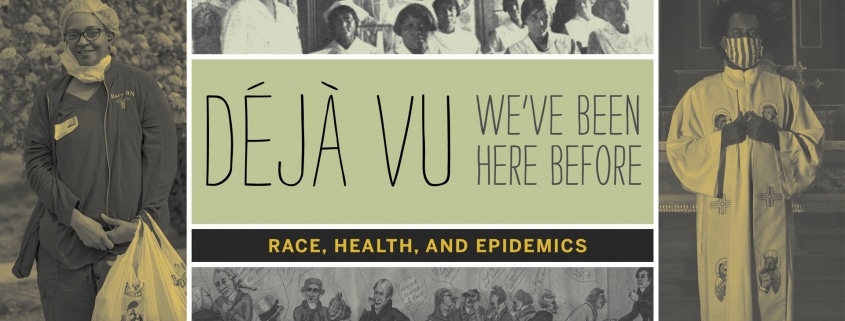
In spring 2020, the United States ground to a halt because of the introduction of the novel coronavirus. Physicians and researchers were stumped about how to combat its debilitating and fatal effects. Early on, elected government officials and public health workers disseminated information that was often not accurate to a public who vacillated between fear and antipathy of the virus’ effect on their lives. What was unsurprising to those who research the effects of racism and medical health on African Americans was the absolutely devastating and disproportionately high rates of infection and death within this community. Why were so many African Americans affected by Covid-19, the virus’ disease? Is this moment exceptional or has our society experienced these public health crises before in racialized communities? These two questions guided our student curators as they investigated race, health, and epidemics by examining ideas about racial difference, space and place, the young Black body, early knowledge production in popular literature, and labor. Largely mining through the extensive Library Company collection, Tiffani, Abigail, Christoforos, Mikayla, and Guevara have chronicled the long history of medical racism from the 1793 Yellow Fever epidemic to 2020’s Covid-19. We all are hopeful that this déjà vu moment never returns.
Deirdre Cooper Owens
Director, Program in African American History
Resources


